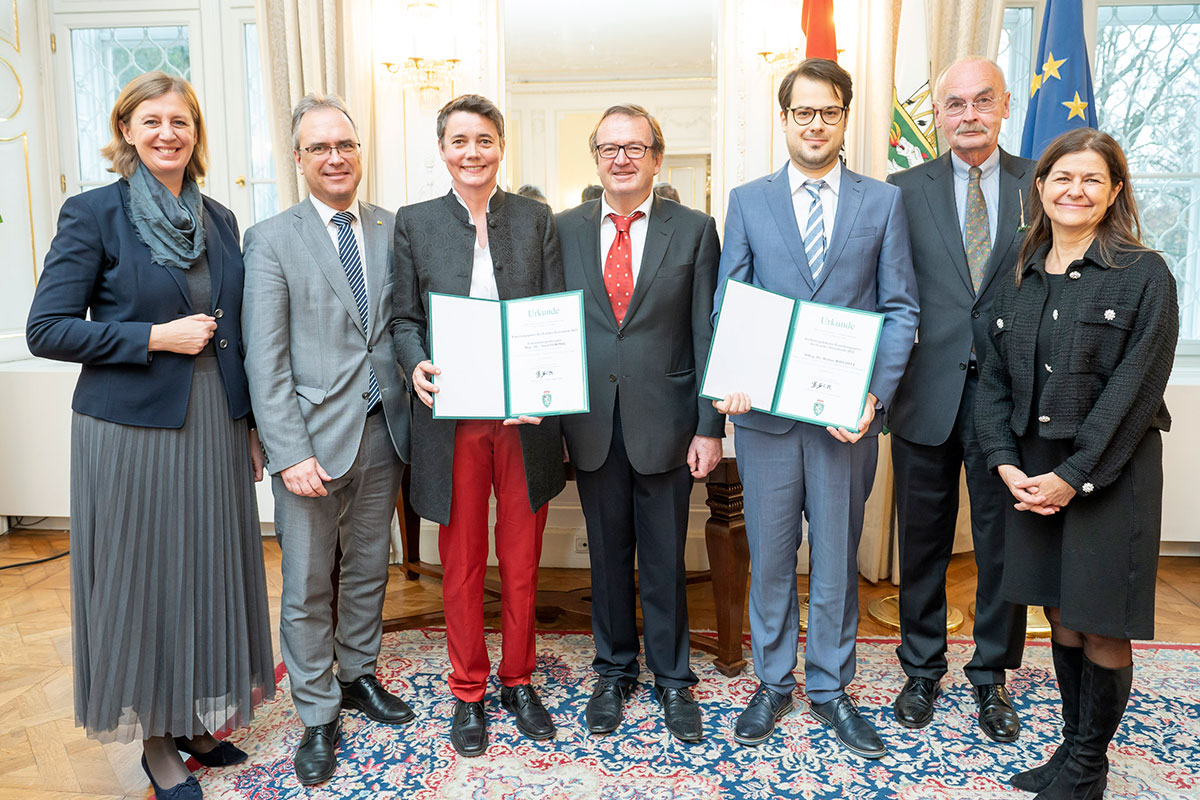Sie hat die Sterne im Visier, er die Steiermark. Die Astrophysikerin Astrid Veronig beobachtete die Ausbrüche ferner Sonnen, der Historiker Markus Roschitz brachte neue Erkenntnisse über den Aufstieg der NSDAP in der Region Schwanberg ans Licht. Beide Wissenschafter:innen der Universität Graz wurden am 18. November 2022 von den Landesrätinnen Barbara Eibinger-Miedl und Doris Kampus ausgezeichnet. Astrid Veronig erhielt den Forschungspreis des Landes Steiermark, Markus Roschitz den Erzherzog-Johann-Forschungspreis, jeweils dotiert mit 12 000 Euro.
Ausbrüche
Unsere Sonne versorgt uns nicht nur mit Licht und Wärme, sie schleudert immer wieder auch magnetisierte Plasmawolken ins All. Auf der Erde machen sie sich als faszinierende Polarlichter bemerkbar. Sind die Ausbrüche besonders energiereich, können sie elektronische Systeme auf Satelliten lahmlegen oder sogar Stromausfälle auslösen. Astrid Veronig und ihr Team konnten mit einer neu entwickelten Methode nun auch auf anderen Sternen koronale Massenauswürfe nachweisen. „Wir beobachten die Sonne und Sterne im Licht der ultravioletten und Röntgenstrahlung, wo die Millionen Grad heiße Korona am meisten Strahlung aussendet“, erklärt die Astrophysikerin. „Wenn es zu Massenauswürfen kommt, also riesige Plasmawolken aus der Korona hinausgeschleudert werden, so bleiben in diesem Strahlenkranz Verdunkelungen zurück, die wir nachweisen können“, erklärt die Astrophysikerin.
>> mehr dazu
Umbrüche
Große politische Entwicklungen werden im Kleinen greifbar. In seinem Buch „Die NSDAP in der Region Schwanberg 1930–1938. Eine Mikrostudie“ zeigt der Historiker Markus Roschitz detailliert und anschaulich, wie sich die NSDAP im ländlichen Raum in der Südweststeiermark etablieren konnte. Seine Forschungen, für die er bislang unbekannte Quellen und Bildmaterialien heranzog, stellen eine modellhafte Beschreibung und Analyse dieses Gebiets in jener Zeit dar und brachten neue Erkenntnisse über die damaligen politischen, wirtschaftlichen und gesellschaftlichen Verhältnisse der Region Schwanberg. Roschitz schildert unter anderem den gescheiterten Putschversuch im Juli 1934, die darauffolgende Strategieänderung der lokalen NS-Organisation, die Situation der paramilitärischen „österreichischen Legionäre“, die Gegenmaßnahmen des autoritär regierten Staates sowie weitere wesentliche Ereignisse bis zur nationalsozialistischen Machtübernahme im März 1938, eingebettet in die allgemeinen historischen Entwicklungen.
>> zum Buch
